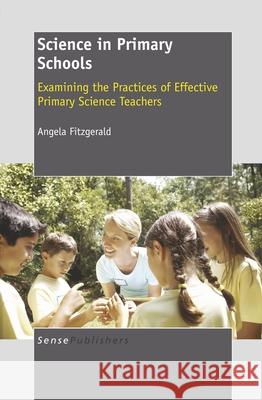Science in Primary Schools : Examining the Practices of Effective Primary Science Teachers » książka
Science in Primary Schools : Examining the Practices of Effective Primary Science Teachers
ISBN-13: 9789460918575 / Angielski / Twarda / 2012 / 124 str.
Science in Primary Schools : Examining the Practices of Effective Primary Science Teachers
ISBN-13: 9789460918575 / Angielski / Twarda / 2012 / 124 str.
(netto: 420,89 VAT: 5%)
Najniższa cena z 30 dni: 423,64
ok. 30 dni roboczych.
Darmowa dostawa!
If the status and quality of science education in schools is to improve, efforts need to be made to better understand the classroom practices of effective science teachers. Teachers are key players in a re-imagining of science education. This book explores how two primary school teachers, identified as effective practitioners, approached science teaching and learning over a unit of work. In recording the teaching and learning experiences in their classrooms, the author highlights how the two teachers adopted different approaches, drawing on their particular beliefs and knowledge, to support student learning in science in ways that were appropriate to their contexts as well as refl ected their different experiences, strengths and backgrounds. Through sharing their stories, this book illustrates, that due to the complex nature of teaching and learning, there is no one way of defi ning effectiveness. In documenting this research, it is hoped that other teachers and teacher educators will be inspired to think about primary school science education in innovative ways
If the status and quality of science education in schools is to improve,efforts need to be made to better understand the classroom practices of effective science teachers. Teachers are key players in a re-imagining of science education. This book explores how two primary school teachers, identified as effective practitioners, approached science teaching and learning over a unit of work. In recording the teaching and learning experiences in their classrooms,the author highlights how the two teachers adopted different approaches, drawing on their particular beliefs and knowledge, to support student learning in science in ways that were appropriate to their contexts as well as refl ected their different experiences, strengths and backgrounds. Through sharing their stories, this book illustrates, that due to the complex nature of teaching and learning, there is no one way of defi ning effectiveness. In documenting this research, it is hoped that other teachers and teacher educators will be inspired to think about primary school science education in innovative ways.











